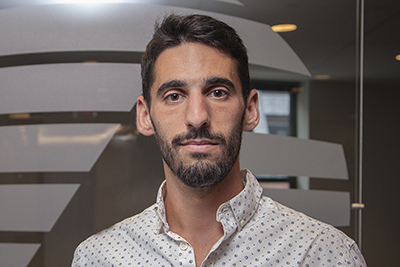
Jon Schneyer
Track: Natural Hazard and Catastrophes
Graduated: May 2019
What is your current job/project and main responsibilities? Please tell us as much as you like about what you are doing.
I am a Risk Consultant in the Global Resilience practice at AIR Worldwide, catastrophe risk modeling company. It is my goal to leverage our catastrophe models and expertise to help public entities such as local, state, and federal governments, non-governmental organizations, universities, private research organizations, and others quantify their risk to natural disasters. Such disasters include, but are not limited to floods, earthquakes, hurricane winds and storm surge, winter storms, and severe convective storms. Natural disaster preparedness can take many forms, whether that be risk transfer (insurance), mitigative efforts (sea walls, pumping stations, shake-resistant buildings), or financial security. All these strategies begin with knowing exactly what you may lose, and what is the likelihood you may be impacted. With this knowledge in mind, governments can make the most meaningful, economical, and tactful decisions when it comes to protecting the people from a catastrophe.
Tell us about your MPS internship, and in what ways did it help you develop professional skills and connections?
My MPS internship was at the same organization, and within the same group, that I currently work with, since I was hired to full-time during my internship. This was incredibly beneficial because I was already trained by AIR Worldwide, learning all the skills and best practices needed to be the Risk Consultant that they would normally hire off the street. I was fortunate to be able to continue strengthening the connections within and outside the office that I had made when I started my internship, and I did not have to “start over” at a new company. There was relatively little on-boarding and I was thrown into a new project, speaking and working with new clients from day one, gaining more experience that I could have ever expected at another internship.
What was your MPS track?
Natural Hazard And Catastrophes
Please tell us about your time here at Rosenstiel School. Provide one of your favorite memories.
Connecting with some of the professors and staff that had been at Rosenstiel School for many years. They had some of the best stories, trade secrets, and fun facts not only about Rosenstiel School, but Miami in general. Being able to spend time in the Wetlab with them made the community feel so tightknit and special.
What were your favorite classes at Rosenstiel School and why?
I have two favorites, both of which I am choosing because of their importance in the industry; Intro to ArcGIS and Statistics. The world around us is built on data, and not just data, but big data. Being able to manage that data, make statistically significant inferences from the data, and present the findings in a meaningful and impactful manner is incredibly important when you are working with clients. Statistical programming and geospatial analytical skills are incredibly useful.
What piece of advice would you give to current or incoming MPS students?
One piece of advice I would give to current or incoming MPS students is to not be afraid, or be discouraged, from failing. The internship is the most important part of this degree, and you need to “put yourself out there” when it comes to applications. The connections you make at school and outside the classroom will help you make contact with potential employers, but you will have to be comfortable submitting 50 applications and being rejected by 49 of them. A second piece of advice is, if you are interested in working full-time with your internship organization after you complete the internship, to make it known that you want to stay with the company. It is not assumed, and if you make it known early, and you prove that you would be an excellent member of the organization, space can be made for you to stay on full-time. You benefit from being already trained and well versed with your organization’s practices. But let your internship adviser know as early as possible.




